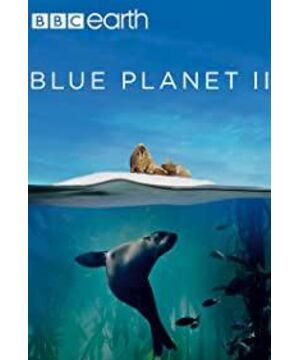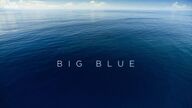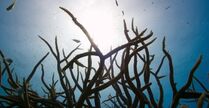70% of the Earth's surface is surrounded by water. Compared with the land where human beings live, the ocean occupies a much larger proportion of this planet. It is appropriate to call the earth the "blue planet". We demand rich resources from the oceans, and we hurt them in return.
The vitality of the ocean comes from the complete biological chain. From big blue whales to small planktons, they are all indispensable links in the chain. With the development of commercial fishing, marine fish resources are rapidly being consumed. When the offshore fish are caught, they turn to the deep-sea fish.
- There are 4 million fishing boats going to the ocean every day, catching 90 million tons of wild fish every year. 80% of fingerlings are already overutilized.
- The combination of giant ships and sonar and network technology allows fishing boats to cover 60 kilometers of sea surface.
- Advances in aviation and fresh-keeping technology allow seafood from the water to reach any corner of the earth within 24 hours.
- The application of deep-sea fishing nets has allowed 90% of the predatory fish in the sea to be caught and eaten within 50 years.
In "Death of the Ocean", marine conservation experts predict that according to the current trend, by 2050, the ocean will collapse. Nor is it alarmist.
The consequences of overfishing are not as simple as "no fish to eat". In "Blue Planet 2" we saw that overfishing harms the biological chain centered on coral reefs. The organic matter accumulated on the seabed cannot be consumed, but gradually decays, producing methane and salt brines. Salt brine, which is five times heavier than sea water, gathers on the seabed to form a pool of concentrated salt water, which becomes the "dead water" in the ocean. Marine creatures that stray into this "dead water" will suffer from poisoning shock in mild cases and direct death in severe cases. And these are just the tip of the iceberg of the destruction of marine ecology. Although we are not the direct murderers of the ocean, we are acting as accomplices, intentionally or unintentionally.
Marine pollution, overfishing... these problems seem a little far away from our lives. But when it comes to environmental protection and animal protection, "what foods should not be eaten" cannot be avoided by everyone.
Activist groups advocate a total vegetarian diet to protect animal rights. It is true that we have no right to judge others with the highest moral standards. But we can start with ourselves and make better choices for the sustainability of our oceans, planet and ourselves. For example, choose seafood caught by "sustainable fishing methods" as much as possible, such as avoiding bluefin tuna, bigeye tuna and other vulnerable and endangered species.
Bluefin tuna is the most wild life in the ocean, they are generally 2-2.5 meters long, and the longest is more than 4 meters. It can swim 30-50km per hour, and the fastest can reach 80km per hour. At the same time, it is an extremely rare warm-blooded fish, and if you swim with it (if you can keep up with its speed), reach out and touch its smooth body, and you can feel its warm skin. A bluefin tuna that lives to 15 years old means that it has swam 1.6 million kilometers in the ocean, and the two sides of the ocean have been back and forth many times - because it will not stop swimming in its sleep until it dies. However, most Pacific bluefin tuna have no chance to see the scenery of 1.6 million kilometers. Nearly 70% of Pacific bluefin tuna are on our table before they are one year old, and most of the remaining tuna are also alive. less than three years old, while their average lifespan is forty years.
Bluefin tuna is at the top of the marine food chain. The extinction or sharp decline of the population will have a great negative impact on other species, and then affect the ecology of the entire ocean. Without care, they, and many more species, could disappear from the planet forever, and be left behind by forgetful humans.
In front of these creatures, "don't eat" is not a difficult choice. The lives that this choice can save is beyond our imagination.
View more about Blue Planet II reviews









